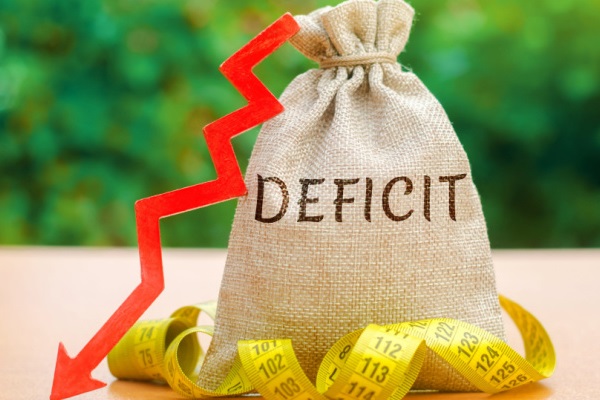Egypt’s budget achieved a primary surplus of 3.9 billion (EGP 193 billion) in the past eight months of FY2023/2024, compared to $857 million (EGP 41.8 billion) in the same period of the previous fiscal year, representing a growth rate of over 4.5 times, Minister of Finance Mohamed Maait said in a press conference last week.
Key figures
General revenues rose by 34.6%, fueled by a 38.3% growth in tax revenues, reaching $18.3 billion (EGP 892 billion) compared to $13.2 billion (EGP 645 billion) in the corresponding period of the previous fiscal year.
The overall deficit rate increased to 6.7% of the Gross Domestic Product (GDP), up from 5% in the previous year, attributed to the rise in interest rates, according to the minister, considering the adverse economic conditions.
“General expenses witnessed a growth of about 52% as a result of the increase in interest rates as well. The growth of the Suez Canal revenues contributed to achieving $2.3 billion (EGP 114 billion) during the first half of the current fiscal year, out of a targeted amount of $3.3 billion (EGP 160 billion,” said Maait.
In his speech, Maait emphasized that the Egyptian state is leveraging all its resources to expedite recovery, achieve economic stability, and curb inflation as swiftly as possible.
“We have succeeded in managing the public finance of the state amid immense challenges. These challenges include the slowdown in economic activity, regional and international geopolitical tensions, and the impact on the revenues of the Suez Canal due to the disruption in the Red Sea region,” Maait pointed out.
He added that despite these challenges, there has been an expansion of social protection measures, and the General Treasury of the state has been keen on mitigating the inflationary effects on citizens, especially in supporting wheat, petroleum, subsidized goods, and bread.
Ras El-Hikma’s revenue
The minister also noted that the majority of revenue from the Ras El-Hikma deal will enter the General Treasury of the state, contributing to achieving the targets of reducing the debt-to-GDP ratio to 94% or lower. Furthermore, there are expectations of surpassing targeted rates for the overall deficit and primary surplus by the end of the current fiscal year on June 30.
In February, the UAE, through its ADQ, signed a $35 billion deal with Egypt to develop the coastal zone of Ras El-Hikma. Egypt has already received $10 billion from the total amount, with additional financing from other international financial institutions, including the World Bank and the European Union, to be announced soon.
The minister reiterated that the government is striving to ensure the availability of goods in adequate quantities and to restore price stability in the markets, aiming to improve the standard of living and alleviate the cumulative effects of global crises on citizens over the past two years. In this regard, Maait revealed that the total value of goods and commodities released from January 1st until now has exceeded $13 billion.
Maait also addressed the new deals Egypt has recently signed or will sign to alleviate the US dollar shortage crunch in the local market.
“Egypt has reached a deal with the International Monetary Fund (IMF) to complete the first and second reviews and increase financing to $8 billion, in addition to $1.2 billion from the Green Climate Fund. There are also additional financial arrangements with other entities such as the World Bank, the European Union, the African Development Bank, the European Bank, the Arab Monetary Fund, and the Japanese side, raising the value of support for the economic reform program from international institutions and international development partners to over $20 billion,” Maait explained.
The minister added that there is no plan to access international markets until the end of the current fiscal year, with the goal being to reduce the cost of financing for the General Treasury of the state.
New budget objectives
Maair emphasized that the targets outlined in the new budget for FY 2024/2025 are crucial tools for correcting the course of the Egyptian economy and restoring stability.
“Our goal is to achieve a primary surplus of no less than 3.5%, reduce the debt-to-GDP ratio to below 90%, and streamline spending so that financial allocations for all budgetary entities do not exceed what is planned in the current fiscal year, except for critical sectors such as health, education, social protection, and industrial and productive sectors,” said Maait.
He further explained that setting a ceiling for public investments for all state entities at one trillion Egyptian pounds is aimed at creating space for the private sector and increasing its investments in the national economy.
The minister also highlighted that the implementation of the general government budget starting from FY 2024/2025 and the full coverage of all economic entities over the next five years will help improve economic and financial performance indicators, reflecting the capabilities and capacities of the Egyptian state.







